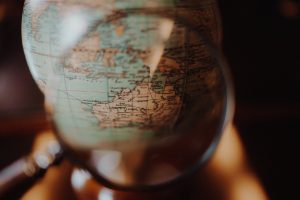Australians are a uniquely compliant people. Despite our carefree self-perception and rebellious national mythology, Australians love rules and eagerly abide by them. This obedient cultural trait has proved highly advantageous during the COVID-19 pandemic, with the public having understood the strict measures that have been put in place, and constrained their own behavior accordingly. This deference to authority has allowed governments at both the state and federal level to implement necessary restrictions without serious pushback. Indeed, in Western Australia the government was recently rewarded electorally for its stringent controls.
However, with its recent outright ban on citizens being allowed to return home from India — with potential jail time for those who break the ban — the Australian government may have overplayed its belief in what Australians will tolerate. Here the ban clashed with another Australian cultural trait, that of a general sense of fairness, with around 9,000 Australians stranded in India — through no fault of their own — in an increasingly precarious environment.
Although the ban is set to be lifted on May 15, repatriation for Australians in India may still take some time. Australia has been unique in its response to the pandemic in that it has restricted its own citizens from returning to the country. Each state has designated weekly quotas of people they will allow to land in their respective international airports. Most flights into Australia only carry a small number of passengers due to both the quota system and social distancing regulations.
This has had the knock-on effect of airlines having a captured market of people trying to return home and adjusted their pricing structures dramatically, effectively shaking down Australians to see who wants to return home the most (and can pay to do so). This has had the effect of trapping many Australians outside the country for months. Although the government has organized occasional special charter flights from certain major cities globally — with three flights planned from India between the May 15 and the end of the month — seats are limited and provided on a first-come-first-served basis.
These restrictions on Australian citizens entering their own country has brought to light questions about the obligations the Australian state has toward its citizens, and whether some citizens are more equal than others.
One of the basic principles of citizenship is that citizens are able to freely return to their countries. This is enshrined in both the Universal Declaration of Human Rights, and the International Covenant on Civil and Political Rights. Yet in Australia’s domestic laws there are general assumptions, but no such explicit guarantees. Australia also lacks a bill of rights that would protect such fundamental rights. The right of abode should automatically imply the right of return, but the Australian government has made the calculation that the Biosecurity Act takes precedence over this obligation to its own citizens. Australian citizenship has gone from having rights and responsibilities to bearing burdens and costs.
Beyond this legal murkiness, the Australian government has failed to acknowledge that in a modern, multicultural society like Australia people have their own transnational obligations — obligations that simply cannot be conducted via Zoom. The pandemic has often heightened the necessity for people to travel in order to provide support to their families abroad. People from backgrounds that place family at the center of their social lives, like many Indian Australians, have especially been drawn to these responsibilities.
Australia’s response to international travel has displayed either a blunt ignorance of these values — potentially due to the lack of Asian Australian political representation — or an indifference to them. The enthusiasm with which Australian governments have embraced the new conditions of the pandemic has blinded them to the complex humanity of these conditions. Protection from the virus is only one element of this humanity. A failure to provide realistic pathways for people to perform their personal responsibilities is deeply distressing for many people.
There is an added element to this lack of empathy toward Indian Australians especially. When the United Kingdom and the United States had rates of infection that were higher per capita at their peak than the current rates in India, the Australian government did not implement a travel ban from those countries. There is a sense that the measures taken against Indian Australians are disproportionate to those whose transnational links lie elsewhere.
With the conditions in India that led to the ban unlikely to change any time soon, the decision to end the ban on travel from India seems to have come in response to a strong public backlash. The government seems to have realized that it had been far too heavy-handed in its response to India’s suffering. That suffering is being felt keenly in the Indian Australian community, and generating sympathy from other Australians as well.
In the last Australian fiscal year (July 2019 to June 2020) 38,000 people from India became new Australian citizens. For many of them this will be the first test of their rights as new Australians. The government may be hoping that the majority of voters will have forgotten this betrayal of the state’s responsibilities toward its own citizens by the time the next federal election comes around. But it is doubtful that the increasingly sizable — and politically vocal — Indian Australian community will forget that their own personal responsibilities were not considered valuable by the Australian government.

































